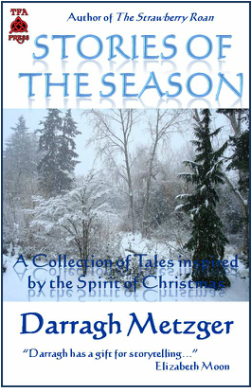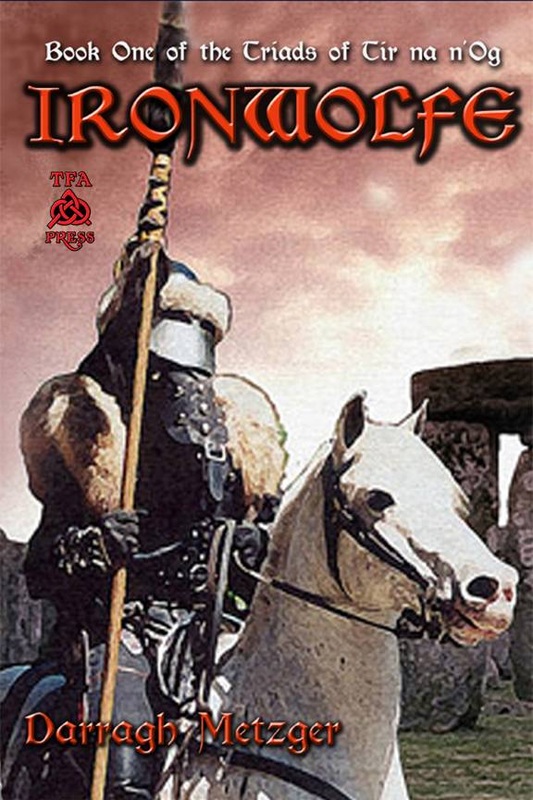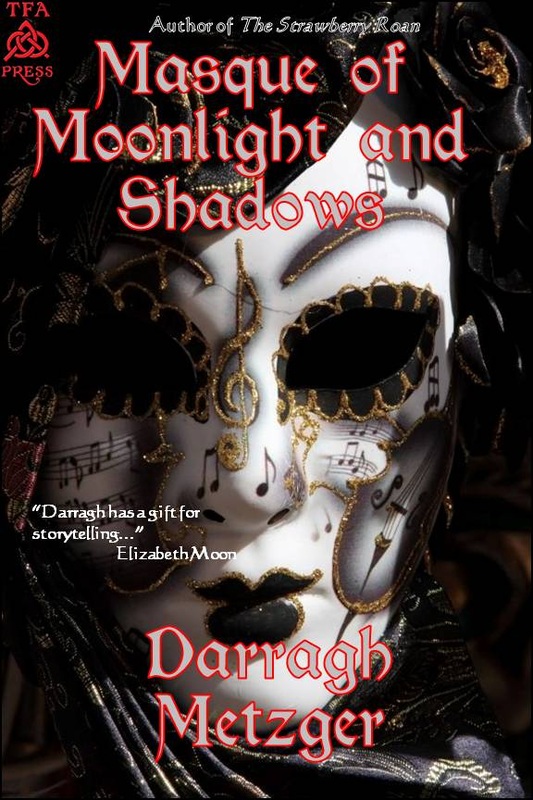I read Judith Tarr's new horse column, The SSF Equine: Troublesome Tropes About Horses, with great interest and anticipation. I'd been hoping for someone to pick up on the need for such a column since Sue Bolich's passing last year. As I expected, it's a fun read with lots of wonderful and spot-on information. If you haven't read it yet, treat yourself: http://www.tor.com/2017/02/20/the-sff-equine-troublesome-tropes-about-horses/.
She points out a few things I've rarely seen mentioned before, like how Hollywood constantly dubs in whinnying and other horse noises, as if to remind the audience that, yes, there are horses on-screen, because they're just not obvious enough. Horses are actually pretty quiet animals and only whinny for specific reasons. When I was growing up, I noticed that all movie and TV horses sounded alike, which is not the case with real ones; their voices are as individual as their personalities. As I grew older, I realized just what those nickers, chortles, snorts, bugles, squeals, and whinnies signified. After doing a little research I learned what I'd long suspected: many of the horse noises you hear in films (up until relatively recently) were produced by two horses, a mare in season and the stallion courting her, during a single afternoon around 1947. So every time you hear a horse nickering or squealing on screen, it's probably one of those two. Yes, you're hearing horses talking dirty.
But anyway, back to my initial topic. One phrase Ms. Tarr used as a sub-header really stood out to me: A Horse is Not a Motorcycle.
I no longer teach riding, mostly because my own skills have gone to hell, but my husband still does, primarily to those interested in learning to joust. Those words are something he repeats so often it's almost like a mantra: "A horse is not a motorcycle."
What does this mean, exactly? Well, there are the obvious physical aspects, of course: horses can't gallop from sunup to sundown, horses need food and water after a hard day's work, horses can't just be stuck in a box and forgotten between rides.
Oh, wait, now we're getting into the part not addressed by Ms. Tarr, largely because it is usually ignored in literature or film (though it shouldn't be). But it's a subject near and dear to my heart, and something anyone who works with horses (or wants to) should be aware of: Horses are also not like motorcycles, because – wait for it – Horses Have Emotions.
Horses are living, thinking, feeling beings, each with their own personality, needs, and desires. No two are alike. And their personality, needs, and desires may not necessarily align with your personality, needs, and desires. As with any other relationship, to build a strong one, you need to take your horse's emotions into account.
Okay, say you're new to riding, or a particular discipline, excited about it, and you want to get better, fast. Remember, your horse may not necessarily be on the same wavelength. Maybe you two are still getting to know each other. Maybe he's having an "off" day. Maybe he doesn't know any more about what you are trying to learn than you do. Maybe you don't have your communication skills down yet. Treating him or her with common courtesy costs nothing, and may save both of you a lot of grief in the long run. He or she will tell you when he or she has had enough. They're not usually shy about it. Don't be so obsessive that you work your horse too hard, push the envelope past what he or she is ready for, and so forth, because you're so focused on your own needs and goals you forget to check in with your partner.
That's "partner", not "motorcycle". You see where I'm going with this.
Okay, how about this: forcing your horse to gallop for 20 minutes around the arena because he's too "hot" or excited. Guess what? It's not going to calm him down. It may tire him out a little, but it also triggers the build-up of adrenaline and sets off his "flight" response. If you're running that hard, there must be something to run from. Danger, Will Robinson! You are adding to his anxiety levels and turning what might otherwise be fun into a source of stress. Eventually, he is more likely to blow his cookies and become unmanageable than he is to calm down and tune into what you want. Because – surprise! – he's not a motorcycle.
Motorcycles are just fine if you park them in a garage and ignore them for weeks or months at a time. But horses are social animals. Some horses do reasonably well without other horses around, but they do need some kind of companionship. Ideally, they'll forge that bond with their person. Ideally, you two would hang out in a pasture together all day every day. This, of course, does not fit into most human schedules. But you need to spend as much time with your horse as you can reasonably manage. They have no reason to give you the time of day if you can't be bothered to give more than an hour every week or two to them. I know of plenty of people who only bother to spend time with their horses right before they go into a show or on a trail ride, if then. This is not a way to build trust or any kind of partnership. Unless he's become so desensitized by serial owners/riders that he just doesn't care anymore, your horse wants and needs a partnership with you. He wants to know he can trust you, that you are going to look out for his welfare – just as, believe it or not, he would look out for yours, if you took the time to develop that bond. Pulling them out of the box after not seeing them for two weeks, riding them into a lather, and then sticking them back in the box for another two weeks is not going to build anything but resentment in your horse, which quickly erodes his performance and, thence, your enjoyment of your time together.
They always know if they're just a bottom-of-the-barrel item in your life. They're not machines. They don't work like that. Yeah, here we are, back at that "not a motorcycle" thing.
Unless he's a working ranch horse or an endurance mount, he can't go all day without breaks. Like the modern rider, most modern horses are pretty soft and need a lot of conditioning via gradual workouts to build muscle and strength. What a horse can do these days compared to what their constantly-ridden ancestors could do are two different things. But even in the past, no one galloped from sunup to sundown -- unless they were being pursued or something and didn't care if they killed their horse. Horses are pretty tough, and a horse in prime physical condition can carry a rider all day, rotating between gaits as needed, without much trouble. But he'd better have access to plenty of grass and water at the end of it all, and a good rub-down at the very least, if he's going to be much good the next day. I could go on, but, heck, just read what Ms. Tarr wrote about it. She's pretty clear.
Something else that is too often ignored in fiction: Horses sense and feed off of emotion in people. When you're scared, they get scared. When you're angry, they feel it, and it usually scares them – after all, it's a threat, like pinned ears. When you're excited, they get excited too. An adrenaline rush racing through your veins doesn't just send your pulse skyrocketing, it feeds right into your horse, which may not necessarily be what you want. Keep your own emotions in check and stay centered, and your horse is more able to remain calm and centered as well.
Horses are always more aware of their surroundings than we are. It's a survival trait. In times past, any raiding party or war band knew to pay attention to what their horses told them about their surroundings. I get a kick out of watching horses on film watching the camera for cues, or failing to spot an "ambush" because, gee, they've already rehearsed it 30 times and they know what's coming. Horses never read the script. On set, they learn what the word "Action" barked over a loudspeaker means after about three takes, which forces directors to keep making up new cue words.
By the way, ever wonder why warhorses in battle lines on film won't stand still? On the last set I worked on as a rider, the directors would tell us to "agitate your horses" while we were standing waiting for a charge or something, just to make it look more dramatic, because horses waiting patiently for their cue is visually boring.
To wrap up: if you want to realistically use horses in fiction, treat the horse like a character. No, he/she not going to speak in words, but there is plenty of emotion and reaction to what is happening around him/her to give your story extra life, color, and depth. When in doubt, contact a horse person. Most of us enjoy nothing more than talking about our horses all day long.
She points out a few things I've rarely seen mentioned before, like how Hollywood constantly dubs in whinnying and other horse noises, as if to remind the audience that, yes, there are horses on-screen, because they're just not obvious enough. Horses are actually pretty quiet animals and only whinny for specific reasons. When I was growing up, I noticed that all movie and TV horses sounded alike, which is not the case with real ones; their voices are as individual as their personalities. As I grew older, I realized just what those nickers, chortles, snorts, bugles, squeals, and whinnies signified. After doing a little research I learned what I'd long suspected: many of the horse noises you hear in films (up until relatively recently) were produced by two horses, a mare in season and the stallion courting her, during a single afternoon around 1947. So every time you hear a horse nickering or squealing on screen, it's probably one of those two. Yes, you're hearing horses talking dirty.
But anyway, back to my initial topic. One phrase Ms. Tarr used as a sub-header really stood out to me: A Horse is Not a Motorcycle.
I no longer teach riding, mostly because my own skills have gone to hell, but my husband still does, primarily to those interested in learning to joust. Those words are something he repeats so often it's almost like a mantra: "A horse is not a motorcycle."
What does this mean, exactly? Well, there are the obvious physical aspects, of course: horses can't gallop from sunup to sundown, horses need food and water after a hard day's work, horses can't just be stuck in a box and forgotten between rides.
Oh, wait, now we're getting into the part not addressed by Ms. Tarr, largely because it is usually ignored in literature or film (though it shouldn't be). But it's a subject near and dear to my heart, and something anyone who works with horses (or wants to) should be aware of: Horses are also not like motorcycles, because – wait for it – Horses Have Emotions.
Horses are living, thinking, feeling beings, each with their own personality, needs, and desires. No two are alike. And their personality, needs, and desires may not necessarily align with your personality, needs, and desires. As with any other relationship, to build a strong one, you need to take your horse's emotions into account.
Okay, say you're new to riding, or a particular discipline, excited about it, and you want to get better, fast. Remember, your horse may not necessarily be on the same wavelength. Maybe you two are still getting to know each other. Maybe he's having an "off" day. Maybe he doesn't know any more about what you are trying to learn than you do. Maybe you don't have your communication skills down yet. Treating him or her with common courtesy costs nothing, and may save both of you a lot of grief in the long run. He or she will tell you when he or she has had enough. They're not usually shy about it. Don't be so obsessive that you work your horse too hard, push the envelope past what he or she is ready for, and so forth, because you're so focused on your own needs and goals you forget to check in with your partner.
That's "partner", not "motorcycle". You see where I'm going with this.
Okay, how about this: forcing your horse to gallop for 20 minutes around the arena because he's too "hot" or excited. Guess what? It's not going to calm him down. It may tire him out a little, but it also triggers the build-up of adrenaline and sets off his "flight" response. If you're running that hard, there must be something to run from. Danger, Will Robinson! You are adding to his anxiety levels and turning what might otherwise be fun into a source of stress. Eventually, he is more likely to blow his cookies and become unmanageable than he is to calm down and tune into what you want. Because – surprise! – he's not a motorcycle.
Motorcycles are just fine if you park them in a garage and ignore them for weeks or months at a time. But horses are social animals. Some horses do reasonably well without other horses around, but they do need some kind of companionship. Ideally, they'll forge that bond with their person. Ideally, you two would hang out in a pasture together all day every day. This, of course, does not fit into most human schedules. But you need to spend as much time with your horse as you can reasonably manage. They have no reason to give you the time of day if you can't be bothered to give more than an hour every week or two to them. I know of plenty of people who only bother to spend time with their horses right before they go into a show or on a trail ride, if then. This is not a way to build trust or any kind of partnership. Unless he's become so desensitized by serial owners/riders that he just doesn't care anymore, your horse wants and needs a partnership with you. He wants to know he can trust you, that you are going to look out for his welfare – just as, believe it or not, he would look out for yours, if you took the time to develop that bond. Pulling them out of the box after not seeing them for two weeks, riding them into a lather, and then sticking them back in the box for another two weeks is not going to build anything but resentment in your horse, which quickly erodes his performance and, thence, your enjoyment of your time together.
They always know if they're just a bottom-of-the-barrel item in your life. They're not machines. They don't work like that. Yeah, here we are, back at that "not a motorcycle" thing.
Unless he's a working ranch horse or an endurance mount, he can't go all day without breaks. Like the modern rider, most modern horses are pretty soft and need a lot of conditioning via gradual workouts to build muscle and strength. What a horse can do these days compared to what their constantly-ridden ancestors could do are two different things. But even in the past, no one galloped from sunup to sundown -- unless they were being pursued or something and didn't care if they killed their horse. Horses are pretty tough, and a horse in prime physical condition can carry a rider all day, rotating between gaits as needed, without much trouble. But he'd better have access to plenty of grass and water at the end of it all, and a good rub-down at the very least, if he's going to be much good the next day. I could go on, but, heck, just read what Ms. Tarr wrote about it. She's pretty clear.
Something else that is too often ignored in fiction: Horses sense and feed off of emotion in people. When you're scared, they get scared. When you're angry, they feel it, and it usually scares them – after all, it's a threat, like pinned ears. When you're excited, they get excited too. An adrenaline rush racing through your veins doesn't just send your pulse skyrocketing, it feeds right into your horse, which may not necessarily be what you want. Keep your own emotions in check and stay centered, and your horse is more able to remain calm and centered as well.
Horses are always more aware of their surroundings than we are. It's a survival trait. In times past, any raiding party or war band knew to pay attention to what their horses told them about their surroundings. I get a kick out of watching horses on film watching the camera for cues, or failing to spot an "ambush" because, gee, they've already rehearsed it 30 times and they know what's coming. Horses never read the script. On set, they learn what the word "Action" barked over a loudspeaker means after about three takes, which forces directors to keep making up new cue words.
By the way, ever wonder why warhorses in battle lines on film won't stand still? On the last set I worked on as a rider, the directors would tell us to "agitate your horses" while we were standing waiting for a charge or something, just to make it look more dramatic, because horses waiting patiently for their cue is visually boring.
To wrap up: if you want to realistically use horses in fiction, treat the horse like a character. No, he/she not going to speak in words, but there is plenty of emotion and reaction to what is happening around him/her to give your story extra life, color, and depth. When in doubt, contact a horse person. Most of us enjoy nothing more than talking about our horses all day long.
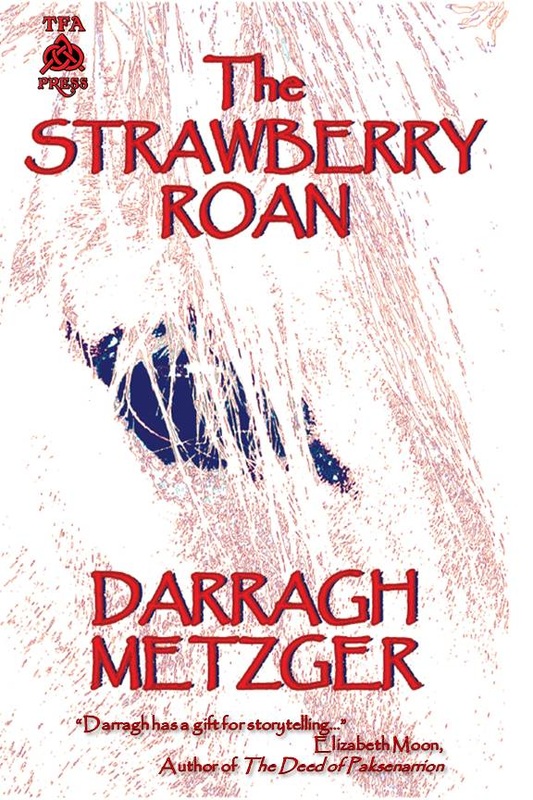
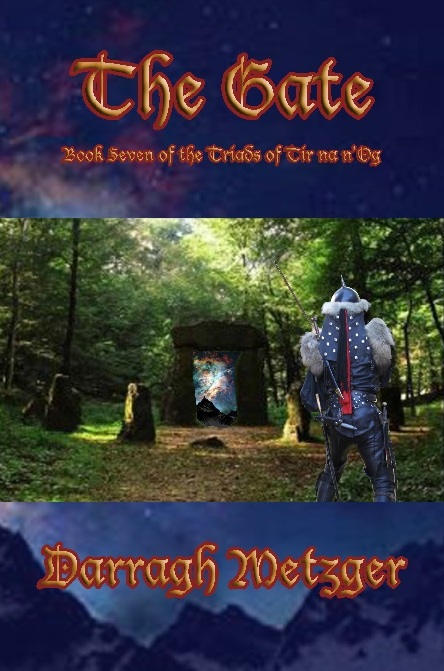
 RSS Feed
RSS Feed
